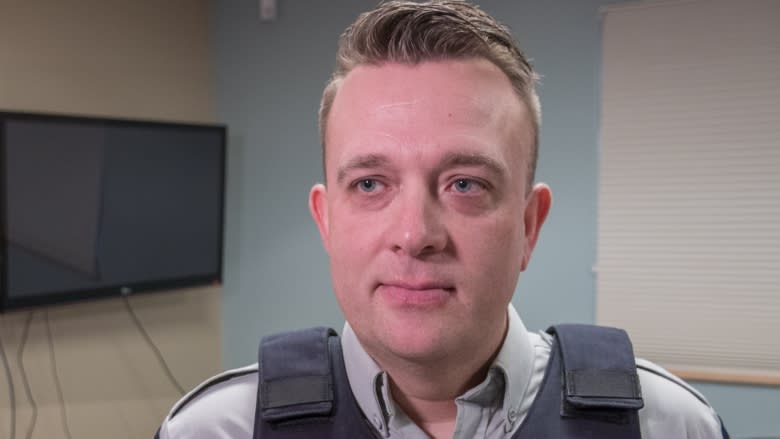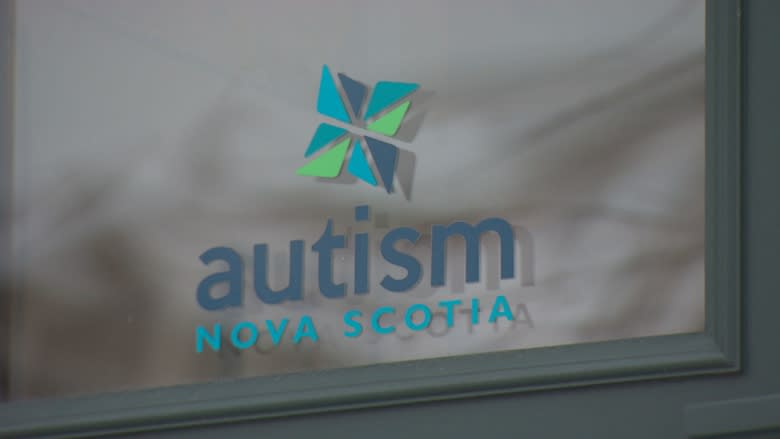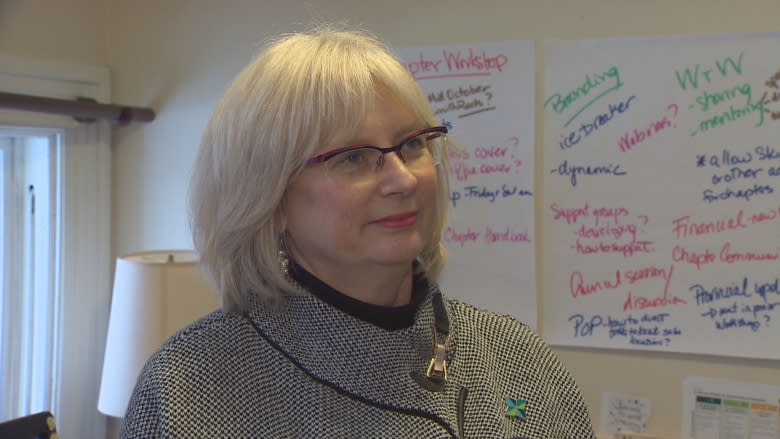Jump in emergency calls involving autism spawns new training for RCMP
RCMP officers on Nova Scotia's South Shore have been struggling with how to deal with an increase in violent outbursts from people with autism spectrum disorder or ASD.
Mounties in Lunenburg County are getting up to three calls a week involving people with autism. Just two years ago it was rare for the RCMP to get any such calls, said Const. Rod Francis, the school safety resource officer with Lunenburg District RCMP.
Most times the outbursts involve people lashing out and trying to hit people or throw things, but usually there are no injuries and no charges are laid, said Francis.
People living with autism spectrum disorder experience challenges with communication, social interactions and sometimes display restrictive and repetitive behaviour. Some people with autism can become violent and aggressive on occasion.
That combination of factors can make it hard for police to communicate with them, especially when tensions are running high.
The RCMP are called to protect people that could be in harm's way and keep the person with autism from hurting themselves.
In some cases, officers would try and restrain the person with ASD and order them to stop. Both of which aren't helpful when trying to calm someone who has autism.
"For some of our members this was their very first time being exposed to ASD. I would often hear members talk about their experiences when dealing with someone with ASD and you know feeling puzzled if they had handled the situation in the right way," Francis said.
He reached out to Autism Nova Scotia for help and the organization, along with the South Shore Regional School Board, arranged a three-hour training session for officers in Lunenburg County.
The program taught strategies on how to identify, approach, communicate and calm people who have ASD. About 30 officers participated.
That kind of training is exactly what first responders need, according to Vicki Harvey, the community outreach coordinator with Autism Nova Scotia.
She said all emergency groups need to understand the different ways to connect with someone with autism in case they're in distress. In doing so, she said they will reduce the risk of injury to bystanders, the person with autism and officers.
"It's certainly going to help the autistic person if they can feel that they can be in community and feel that there are people that will understand," she said.
"It's somewhat of a terrifying thing to go into community if you feel that people are going to see you as odd or different or perhaps treat you in an unkind way because you're having a reaction that you can't help."
Harvey isn't sure exactly why the RCMP are seeing a spike in calls involving people who have autism. However, she does have a theory — that more opportunities for people with ASD to get involved in their communities could be resulting in some people misunderstanding a person's actions and calling police.
Francis believes people have a growing awareness of autism and that police can help them and their loved one stay safe when there's a problem.
The RCMP in Lunenburg County now have new techniques to help them do just that. They learned several strategies to help them work with people who have ASD, those include speaking in a calm tone, using short sentences, approaching people in a calm relaxed manner, and giving individuals space and time to calm themselves down.
Francis said officers have already put the training to good use.
Officers were called out recently when a young person with ASD got frustrated and became a danger to himself and others. Two officers got to the scene before Francis and began working to calm the youth down.
When Francis arrived a short time later everything was calm.
"When I spoke to that youth he was very calm and very cooperative and I believe it was because our members used those appropriate strategies in dealing with him that he was able to regulate himself to come back to a very, very, calm state," said Francis.
He's not aware of plans to expand the training to other RCMP detachments. Autism Nova Scotia offers training sessions to any police force or group that wants it.






